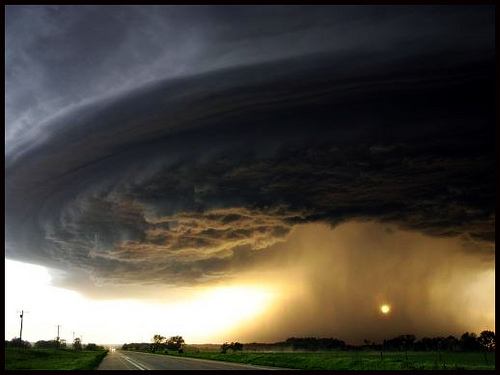There is no industry less enthusiastic about climate change than the insurance industry. After all, if something bad happens to a house or a business or a person, it’s the one that has to pay out — and its entire business model is predicated on minimizing how often it has to pay out. More and more floods and fires and derechos and who-knows-what means more and more checks flowing out of corporate headquarters. Not a pleasant prospect.

Bruna Costa“Please don’t hit that house; please don’t hit that house.”
Munich Re is a reinsurance company, a company that insures insurers. Munich Re, then, is on the hook another level up. Today, the company is releasing new data on how much its clients will be affected by climate change. It’s not excited about what it found. From USA Today:
The report finds that weather disasters in North America are among the worst and most volatile in the world: “North America is the continent with the largest increases in disasters,” says Munich Re’s Peter Roder.
The report focuses on weather disasters since 1980 in the USA, Canada, Puerto Rico and the U.S. Virgin Islands. …
Some of the report’s findings:
- The intensities of certain weather events in North America are among the highest in the world, and the risks associated with them are changing faster than anywhere else.
- The second costliest year of the study period, 2011, was dominated by strong storms. Insured losses in the U.S. due to thunderstorms alone was the highest on record at an estimated $26 billion, more than double the previous thunderstorm record set in 2010.
- Insured losses from disasters averaged $9 billion a year in the 1980s. By the 2000s, the average soared to $36 billion per year.
That last point is remarkable: a fourfold increase in disaster-related losses.
While Munich Re points the finger at climate change, others are hesitant, including the reporter for USA Today. “Whatever the causes” of the disasters, he qualifies. He might benefit from this day-long seminar a group of Minnesota weather reporters recently attended, which articulated the specific trends and anticipated impacts of climate change.
But, then, it’s easy to be skeptical when your economic interests aren’t on the line.



